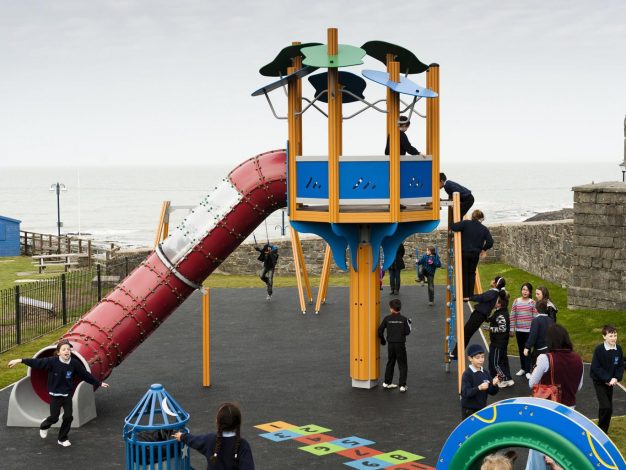
Assessing the future of ‘sustainable’ adventure playgrounds in England
Creating a formal ‘network’ of outdoor adventure playgrounds would help them feel less isolated and more likely to become sustainable in the long run.
Play England, a non-profit body which champions play opportunities for children, commissioned research in 2021 into the spread of adventure playgrounds, with a view to updating and expanding formal records.
This was to both update information held and create the foundations for a network, as a means of offering peer support, while also enabling Play England to assess needs based on government policy.
The report found that establishing such a network would also be a valuable mechanism for Play England to be able to alert playworkers and other key staff about new government policies in the play sector.
‘A valuable mechanism for alerting playworkers’
Training in website development would also help playgrounds raise their profile both socially and, crucially, on a business levell, generating interest both to prospective funders and the wider public.
The report, by Lesli Godfrey of Play England, said that a list put together in 2017 contained the names of 147 playgrounds nationwide, along with the region in which they were based and who they were managed by, for instance the local authority, a voluntary/community body, or a combination of both. Most had websites or a social media presence, and where certain important details were missing then they were contacted and interviews carried out.
“The considerable transfer of management from local authorities to the voluntary and community sector suggests that local authorities were keen for adventure playgrounds to continue, but had less capacity to provide staff and maintenance,” said Godfrey.
It was ‘noteworthy’, she added, that 21 adventure playgrounds had closed in the previous four years. This constituted almost 15 per cent of provision, a ‘significant proportion, and is a worrying trend following the hope that governments generated in the early 21st century’.
‘Provide evidence to make the case’
The report also said that support for and/or training in finding sources of funding and writing funding applications could contribute to financial sustainability for many playgrounds.
“This should include where to source demographic data for neighbourhoods and ways in which data can be collected and managed by playworkers, to support funding applications. Similar research…would enable further comparison, identify trends in playground development and provide the evidence on which to make the case for the development of play provision,” concluded the report.
Click here for more on the work of Play England.



